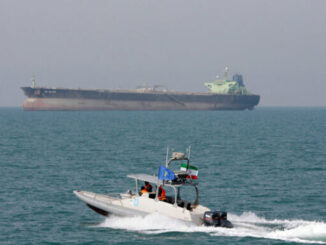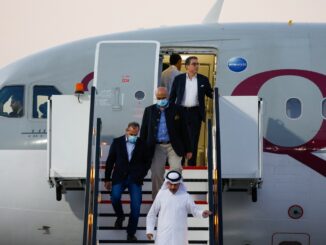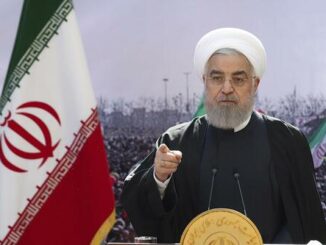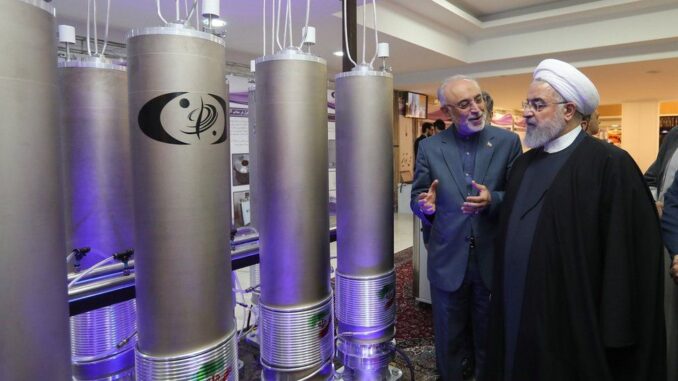
Iran has resumed enriching uranium to 20% purity, in its most significant breach yet of its 2015 deal with world powers to end nuclear sanctions.
The global nuclear watchdog confirmed the process had begun at the underground Fordo plant on Monday.
Enriched uranium can be used to make reactor fuel but also nuclear bombs. Weapons-grade uranium is 90% purity.
A US state department spokesperson accused Iran of pursuing a “campaign of nuclear extortion”.
Iran, which insists that its nuclear programme is peaceful, has rolled back a number of commitments under the deal.
It has said it is retaliating for the US economic sanctions that were reinstated in 2018 by President Donald Trump when he abandoned the accord, also known as the Joint Comprehensive Plan of Action (JCPOA).
In a separate development, Iran’s Revolutionary Guards said they had seized a South Korean-flagged chemical tanker in the Gulf “due to the repeated infringement of maritime environmental laws”.
South Korea’s foreign ministry demanded its immediate release of the Hankuk Chemi and said a South Korean anti-piracy unit stationed in the Strait of Hormuz had been dispatched to the area.
How was the move announced?
Iranian government spokesman Ali Rabiei told media the process of enriching uranium to 20% had started at Fordo.
President Hassan Rouhani had ordered the move because he was “bound” by a new law requiring the production and storage of at least 120kg (265lbs) of 20%-enriched uranium annually for peaceful purposes, he said.
Iran’s parliament passed the law following the assassination in late November of the country’s top nuclear scientist, Mohsen Fakhrizadeh, which Iranian leaders blamed on Israel.
Later on Monday, the International Atomic Energy Agency (IAEA) confirmed Iran’s move in a report to member states.
“Iran today began feeding uranium already enriched up to 4.1% U-235 into six centrifuge cascades at the Fordo Fuel Enrichment Plant for further enrichment up to 20%,” a statement said.
How did other countries react?
Some experts see the announcement as an attempt to put pressure on Joe Biden, who is due to succeed Mr Trump as president on 20 January.
Mr Biden has said he will consider rejoining the nuclear deal so long as Iran returns to full compliance and commits to further negotiations.
The state department spokesperson said: “Iran enriching uranium to 20% at Fordow is a clear attempt to increase its campaign of nuclear extortion, an attempt that will continue to fail.”
EU spokesman Peter Stano said Iran’s move constituted “a considerable departure from Iran’s nuclear commitments under the JCPOA with serious nuclear non-proliferation implications”.
Prime Minister Benjamin Netanyahu of Israel, one of Iran’s main opponents in the Middle East, said the Iranian decision could not be “explained in any way except as continued realisation of its intention to develop a military nuclear programme”.
“Israel will not allow Iran to manufacture nuclear weapons,” he added.
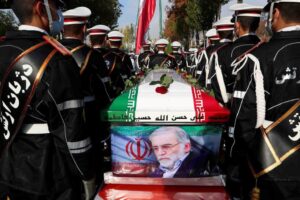
What is enriched uranium?
Enriched uranium is produced by feeding uranium hexafluoride gas into centrifuges to separate out the most suitable isotope for nuclear fission, called U-235.
Low-enriched uranium, which typically has a 3-5% purity of U-235, can be used to produce fuel for commercial nuclear power plants.
Highly enriched uranium has a concentration of 20% or more and is used in research reactors.
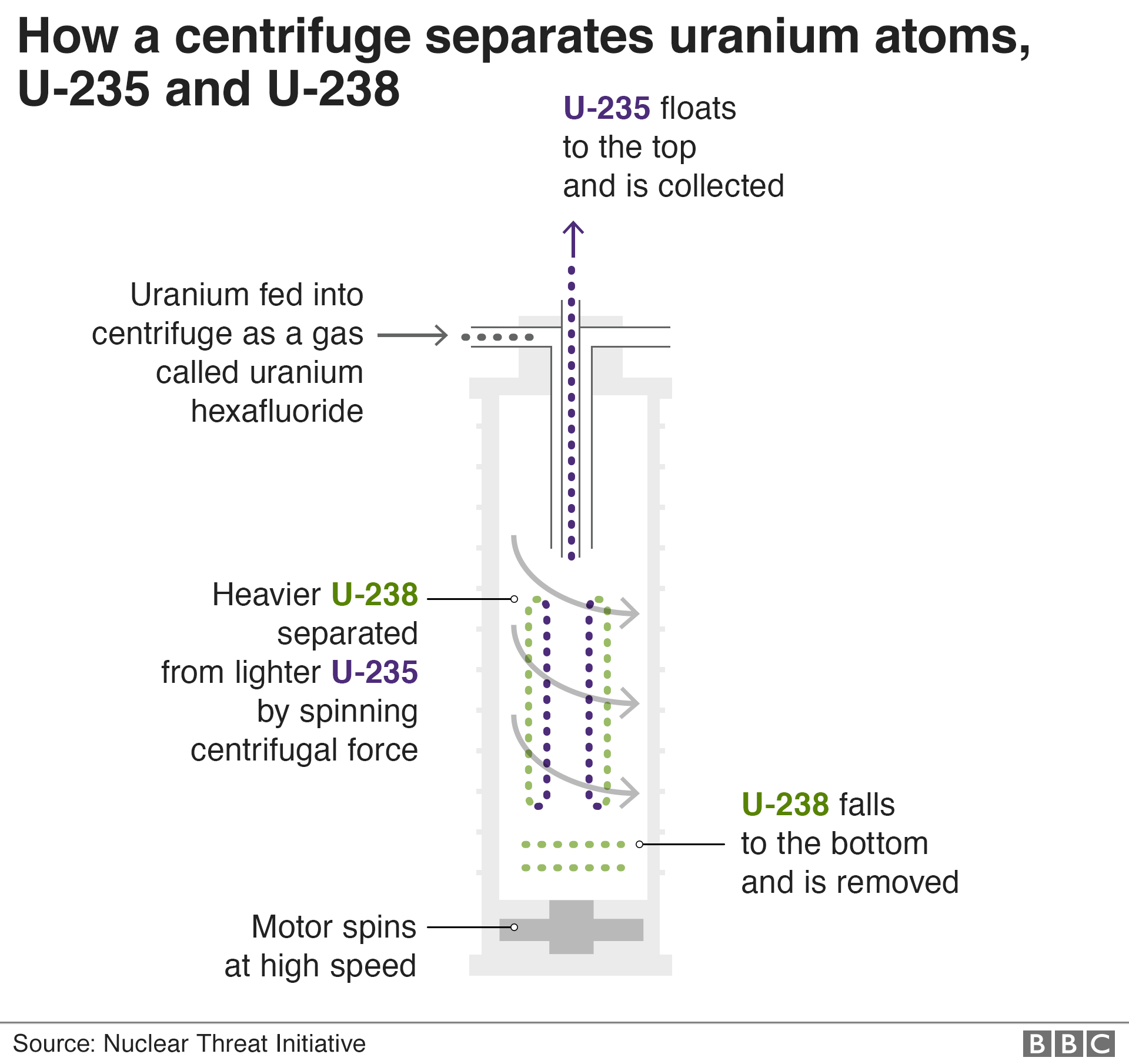

Under the nuclear deal, Iran was allowed to enrich uranium only up to a 3.67% purity; to stockpile no more than 300kg (660lbs) of the material; to operate no more than 5,060 of its oldest and least efficient centrifuges; and was required to cease enrichment at Fordo altogether.
But Iran has taken steps to “reduce” those commitments since Mr Trump reinstated US sanctions to compel it to negotiate a replacement of an agreement he said was “defective at its core”.
The steps have included building up the stockpile of low-enriched uranium, producing 4.5%-enriched uranium, restarting advanced centrifuges, and resuming enrichment activities at Fordo.
Iranian Foreign Minister Mohammad Javad Zarif stressed on Monday that the measures were “fully reversible upon full compliance by all” parties.

Why is 20% purity significant?
Experts at the Arms Control Association said last month that 120kg of uranium enriched to 20% was about half the amount of uranium that, when enriched to weapons-grade (90% or more), was necessary for one bomb.
They also warned that the production of highly enriched uranium would pose a more serious near-term proliferation risk.

